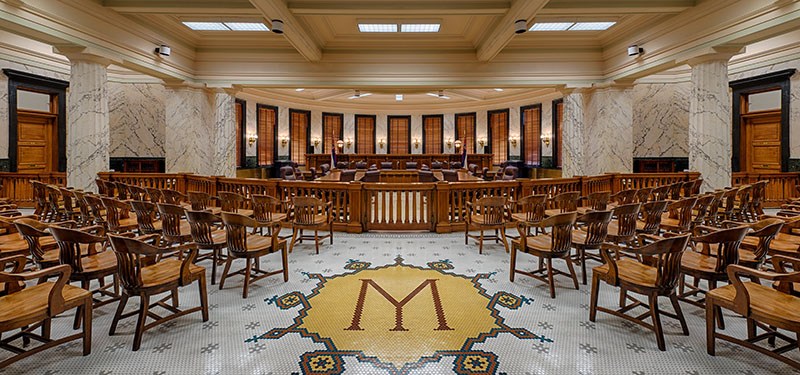What’s Still Alive in the Legislature?

Two major deadlines occurred this week that affect legislation. The deadline for filing to run for re-election was Wednesday afternoon, and while that doesn’t directly affect this year’s session, it does indirectly. Some legislators, if they don’t have an opponent, will feel freer to vote how they want to, knowing they won’t be punished at the ballot box for an unpopular vote.
The other deadline was on Tuesday. Bills that would create new laws or amend old ones had to get out of committee by Tuesday evening. Bills to take your money or spend your money, known as revenue and appropriations bills, have a late February deadline.
So what’s still alive?
Mississippi won’t be following the lead of Utah and Iowa, two states that have passed universal school choice programs already this year. But there are some interesting education measures still alive:
- House Bill 1150, authored by Rep. Randy Boyd, would make needed updates to the state’s charter school law that was passed 10 years ago. It was passed by the House Education Committee in a bare-bones form, with the expectation that an amendment on the House floor next week will restore many of the changes we’d like to see. We’ll let you know next week what changes are approved.
- House Bill 1173, authored by Rep. Richard Bennett, would provide charter school teachers the same debit cards provided to teachers in traditional public schools that help pay for classroom supplies. That bill has passed the full House.
- House Bill 1000, authored by Rep. Bill Kinkade, was introduced as a bill to make children in foster care eligible for an Education Scholarship Account (ESA), but the House Education Committee eliminated the reference to ESAs and now will allow foster children to attend the school or school district chosen by their foster parent or their adoptive parent, if the child was adopted out of the state’s foster care system.
- Senate Bill 2361, authored by Sen. Dennis DeBar, would create a grant program for school districts that are considering a modified school calendar. Modified calendars, which shorten summer breaks and add breaks during the school year (sometimes with added instructional opportunities available) have become popular in recent years. This would help districts offset the costs of the changes. This bill cleared the Senate Education Committee.
- House Bill 752, authored by Rep. Larry Byrd, would make the Dyslexia Scholarship available to children starting in kindergarten. The scholarship eligibility currently does not start until first grade. This bill cleared the House Education Committee.
One regulatory change that would alter how barbers and cosmetologists are licensed is still alive. Senate Bill 2160, authored by Sen. Kevin Blackwell, would dissolve the Boards of Cosmetology and Barber Examiners and move the operations to the Department of Health. It would also provide a pathway to licensure through apprenticeship programs. This cleared the Senate Accountability, Efficiency, Transparency Committee.
And for the second year in a row since the state Supreme Court struck down the state’s ballot initiative process, proposals have circulated to bring this option for voters back. A bill moved last year but died before crossing the finish line. One new proposal, Senate Bill 2638, authored by Sen. Tyler McCaughn, is still alive. In its current form, the process would be so restrictive, few if any initiatives would ever appear on the ballot. Much more work will be needed on this bill to achieve a workable solution.
The House and Senate are now considering about 50 bills per day in each chamber as they move toward next Thursday’s deadline for passing bills that originated in their own chamber.
As mentioned above, that deadline doesn’t apply to tax and spending bills, which means bills to cut taxes, which are likely to generate a good deal of debate, are still ahead.